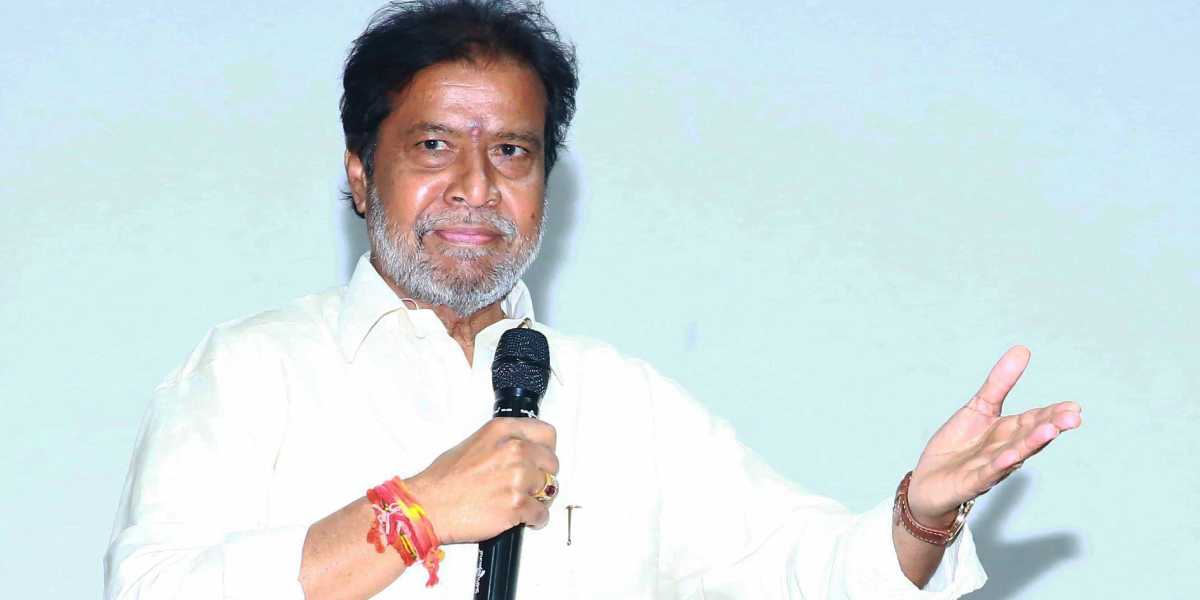Published Nov 21, 2025 | 9:22 AM ⚊ Updated Nov 21, 2025 | 9:22 AM

Synopsis: Telangana has directed all government hospitals to strengthen geriatric services as the state faces a steadily rising elderly population. An estimated 9.1 percent of the state’s population is over 60 years of age. At a recent review meeting, Health Minister Damodar Rajanarasimha asked officials to expand specialised care and ensure that Government General Hospitals are equipped to handle both the physical and mental health needs of older citizens.
Telangana Health Minister Damodar Rajanarasimha has directed all government hospitals to strengthen geriatric services in response to the state’s growing elderly population.
The minister held a review meeting with district medical and health officers and hospital superintendents on Wednesday, 19 November at the Indian Institute of Health and Family Welfare in Hyderabad.
“With the rising elderly population in the country and the state, the government is expanding the medical services required for them,” Damodar said during the meeting.
He instructed senior health department officials to ensure that geriatric services function in all Government General Hospitals across the state.
According to 2023 estimates, 9.1 percent of Telangana’s population has crossed 60 years of age, placing the state close to the national average of 9.7 percent. However, the data shows a sharp divide between rural and urban areas that shapes healthcare needs.
Rural Telangana has 10.7 percent of its population in the elderly category, significantly higher than both state and national averages. Elderly women form 11.5 percent of the rural population, higher than rural men at 9.8 percent.
This shows that rural Telangana has a more ageing population, with elderly women forming the largest share.
Urban Telangana presents a contrasting picture, with only 7.2 percent of the urban population classified as elderly, among the lowest urban proportions across major states. Elderly men and women in urban areas stand at approximately 7.2 percent and 7.1 percent respectively.
Despite the ageing trends, Telangana maintains one of the highest proportions of working-age population (15 to 59 years) among major states at 70.2 percent.
The rural working-age population stands at 69.7 percent, while urban areas register 70.9 percent, showing a relatively young demographic profile overall.
The minister drew comparisons with developed nations that have established dedicated healthcare systems for their ageing populations.
“Just as special child health care centres are run for children, India too would eventually need dedicated hospitals for the elderly, on the lines of Japan and Italy,” Damodar said.
He instructed officials to expand geriatric services in all hospitals with attention to both the physical and mental health issues that arise in old age.
The minister suggested conducting awareness programmes so that the public knows that geriatric wards have already been established in every Government General Hospital and district hospital.
He directed DMHOs to prepare lists of elderly people suffering from health issues and ensure they receive free medical services in government hospitals.
This initiative aims to address the growing burden of non-communicable diseases among the elderly, including hypertension, diabetes, cancer, cardiac ailments and kidney diseases.
Damodar outlined how the healthcare landscape has changed in recent years, requiring hospitals to adapt their services.
“Our healthcare system must evolve with changing conditions. Earlier, communicable diseases were more common. Now, non-communicable diseases and lifestyle diseases are increasing,” he said.
The government has prepared hospitals to provide better treatment for blood pressure, diabetes, cancer, heart diseases and kidney diseases. The health department has opened NCD clinics in all districts, established day-care cancer centres and set up IVF centres across the state.
“Now we are expanding geriatric services. In the future, we will expand all these services even further and provide better medical care within government hospitals,” the minister added.
The Nizam’s Institute of Medical Sciences in Hyderabad remains the only hospital in Telangana with a dedicated geriatric ward, though government policy now pushes for such models to be replicated across the state.
According to the National Medical Commission, only Gandhi Medical College offers geriatric care seats for training specialists, highlighting a severe shortage in the pipeline of trained geriatricians.
The state government has partnered with Tata Trusts to roll out the Elder Spring Response System, which seeks to provide a holistic support network for the elderly. This initiative combines emotional counselling, information support and care navigation services.
Most geriatric services are currently concentrated in urban areas and often carry prohibitive costs, limiting access for rural or lower-income seniors.
Mental health concerns among the elderly have emerged as a growing need, prompting the government to include psychosocial support in its expanded geriatric care framework.
Traditional family-based support systems for the elderly have reportedly declined, making institutional and government-backed care more urgent than ever.
Despite the government’s push to expand geriatric care, significant challenges persist. The severe shortage of geriatric specialists and dedicated wings in medical colleges limits the system’s capacity to meet growing demand.
With only one institution offering training in geriatric care, the state faces years of shortfalls in trained personnel.
Calls continue for greater investments in geriatric care, both in finances and human resources.
Healthcare advocates stress the need for geriatric healthcare to be included at the primary care level to address inequities in access and affordability, particularly for rural elderly citizens who form a larger proportion of the ageing population.
(Edited by Dese Gowda)

